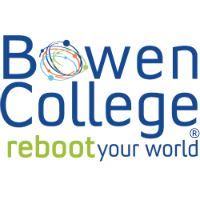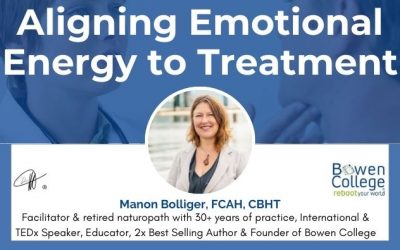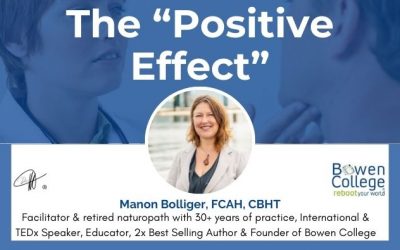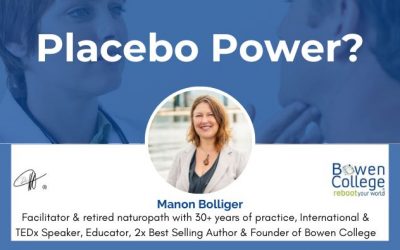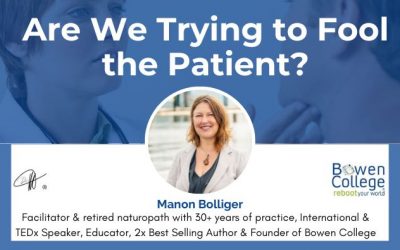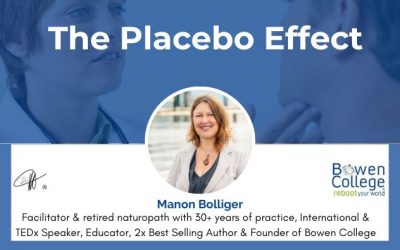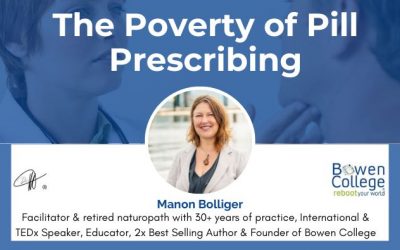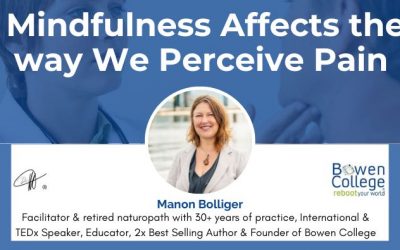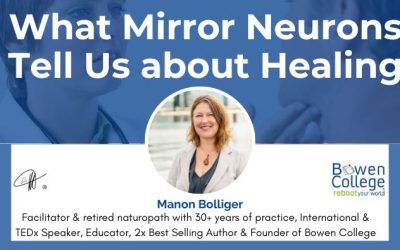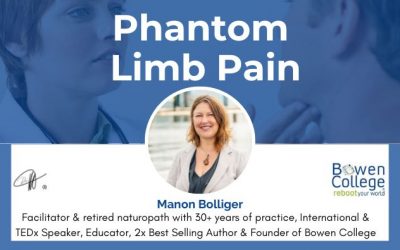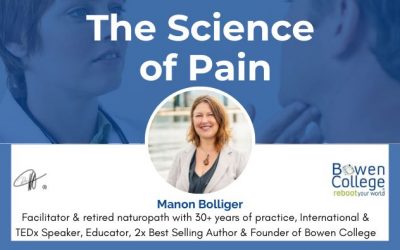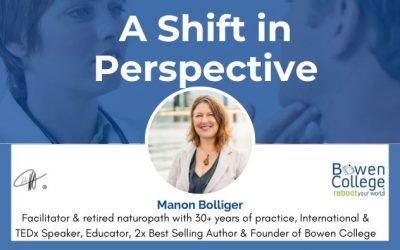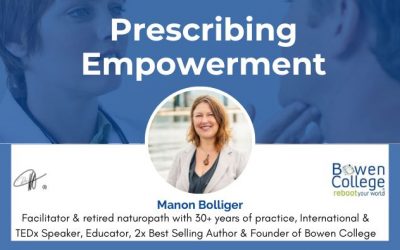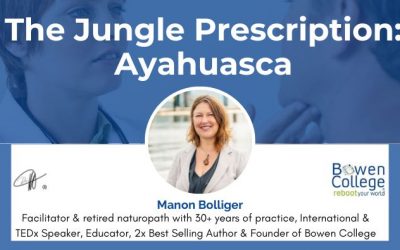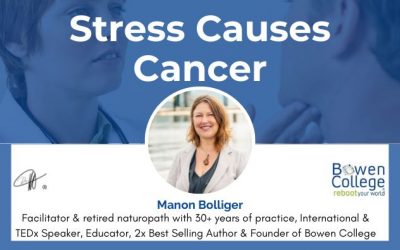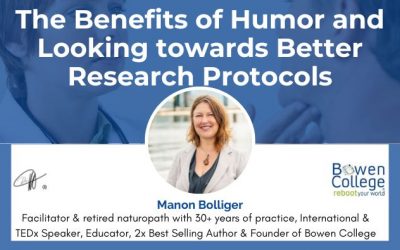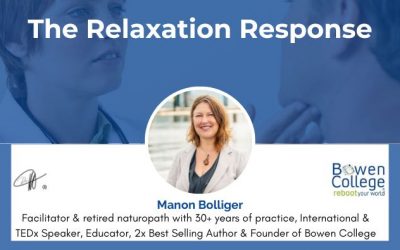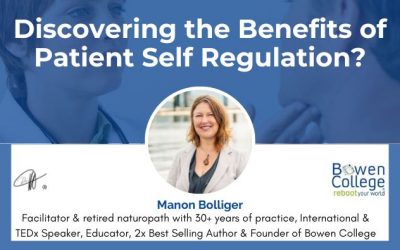News from the Bowen College community
Bowen College is committed to patient-centered, pain-free care. Read news from our community.

Subscribe to the Bowen College blog to read the latest updates for holistic, patient-centered care
On The Virtues of Patients Being Informed and Empowered, Pt 2
In my last post I discussed the findings of a set of vertebroplasty studies that revealed the power of the positive “placebo” effect of informed patients. Let me quote at length one research group’s evaluation: “The power of information disclosure to influence patient...
On The Virtues of Patients Being Informed and Empowered, Pt 1
Over the next couple posts I’m going to discuss a case study that casts a helpful light upon our recent discussion of the so-called placebo type positive effect resulting from a treatment approach that privileges informing and empowering patients. In this study on...
Aligning Emotional Energy to Treatment
Is there something that has yet to be better understood that takes place when a patient engages in a course of treatment? According to Milton Cohen, when considering pain there is, “The self-referentiality of living systems (through their qualities of autopoiesis,...
The “Positive Effect”
As we’ve seen over the last couple posts, the placebo effect discussion is a little more complicated than seems at first flush. We could redefine the “placebo effect” as the “aligned and committed effect” or the “positive effect.” Unwarranted, preconceived negatives...
Placebo Ethics?
In the last post we discussed how research on the placebo effect complicated a lot of assumptions about pharmacological research. But if the manifestations of improved health are not a result of physiological effects, it’s fair to ask: if we’re not the disease, are we...
Placebo Power?
We left off the last post pointing out the ethical quandary around using the placebo effect for therapeutic purposes. Consider the fact that as NDs, “Do no Harm” is a fundamental tenet of our practice. Everything else aside, if the results are similar whether or not...
Are We Trying to Fool the Patient?
In the last post, we saw widespread findings showing a pervasive placebo effect with the use of pharmacological treatments. What do these findings tell us? Why all these variable results? If drugs are supposed to have a predictable result on certain pathways or for...
The Placebo Effect
In Sheather-Reid’s 1990s study on efficacy of pain relief agents, the agents used were opioids and non-opioid analgesics (such as nonsteroidal anti-inflammatory drugs and acetaminophen (paracetamol)) to examine the analgesic efficacy of the opioid agonist codeine...
The Poverty of Pill Prescribing
In the last post we saw the powerful affects of priming individuals as a means to reduce the experience of pain. This confirms our conviction that mindfulness is an essential component in the effective treatment of pain and trauma. The flip side of the matter can be...
Mindfulness Affects the way We Perceive Pain
In contrast to the more empowered approach, discussed over the last several posts, of viewing a patient’s pain as “one of their symptoms,” a pathophysiological approach to pain focuses on pain relief as the primary objective. The choice of intervention is usually...
What Mirror Neurons Tell Us about Healing
This is a bit of a longer post, but I’ll ask you to hang in there with me. We’re covering complex, but really important stuff, here. What we learned last post, about pain and perception, suggests that our therapeutic treatments, lacking research, may be onto something...
Phantom Limb Pain
In the last post we started to explore the role of the brain in pain and recovery. An especially powerful aspect of this is the role of perception. A 2011 study established neural evidence for the brain’s role in controlling motor output (Tanaka et al., 2011, p.38)....
The Science of Pain
In the last several posts, from a variety of angles, we’ve examined the mind-body dimensions of treatment for pain, seeing how it is essential to treat the trauma rather than the symptoms. This has involved treating the body as a carrier of meaning, whose history...
Treating Fear in Accident Cases
In my last post I raised the issue of fear as a meaning invested in the body and its symptoms. The correlation of the body part with the fearful memory deeply connects and acknowledges the fear. Making explicit the mind-body connection helps release the traumatic...
A Shift in Perspective
In recent posts we’ve been discussing the value of a paradigm shift to thinking of the body as a carrier of meaning and the health care opportunities it affords. As one commentator observed: finding ways for patients to shift their perspectives, to achieve “…a shift...
If the Body has a History, What Can it Teach Us?
In the last post we looked at the research on the human body as a carrier of meaning, with a discernible history with lessons to teach us. Let’s look at this idea more closely. The work of Steen et al., “Generalized chronic musculoskeletal pain as a rational reaction...
Prescribing Empowerment
Our discussions in this blog have continually circled us back to the same set of questions. As a doctor, what is our responsibility for assessing the situation and exploring possible “prescriptions”? To how much of the patient’s story will you relate, and through...
The Jungle Prescription: Ayahuasca
In the last post we saw the findings on stress from mouse research. These findings were seen as providing optimism for the development of compounds to improve resilience to pain. A couple of thoughts come to mind in response to these ideas. On the one hand, yes, we...
The Biology of Stress
In recent posts we’ve been considering the therapeutic benefits to dealing with stress as a strategy for addressing pain and cancer. But what is the story behind these concerns with stress? Researchers have long questioned why some people are resilient to stress while...
Stress Causes Cancer
In a study funded by The National Institute on Aging and the National Cancer Institute, researchers interviewed 94 women whose breast cancer had spread (metastatic) or returned (recurrent) about the stress in their lives. David Spiegel, M.D., one of the study's...
The Benefits of Humor and Looking towards Better Research Protocols
In previous posts we’ve considered the benefits of stress relief in treatment. Humor can effectively relax patients, allowing them to better handle fear and anxiety. “Nurses find humor to be very beneficial for increasing their patients’ pain threshold, which helps...
The Relaxation Response
Recent posts have discussed the therapeutic benefits of patient self regulation. Patient self management of stress levels through relaxation response was pioneered in 1976 by Herbert Benson, M.D., head of the Mind/Body Medical Institute at New England Deaconess...
Discovering the Benefits of Patient Self Regulation?
In the last post we began to look the changing role of the Doctor in a health care approach that treated the patient as a whole and meaningful entity. As a person with a life experience that had a bearing upon their existing state of health. We saw that taking a full...
Time to Re-evaluate the Doctor’s Role
‘‘If a feeling becomes strong enough, it might become an image. This image can be of help for the mind.’’ (T.S. Elliot) As a doctor, what extent of responsibility do you have in assessing your patients’ situation and exploring possible “prescriptions”? How much of the...
